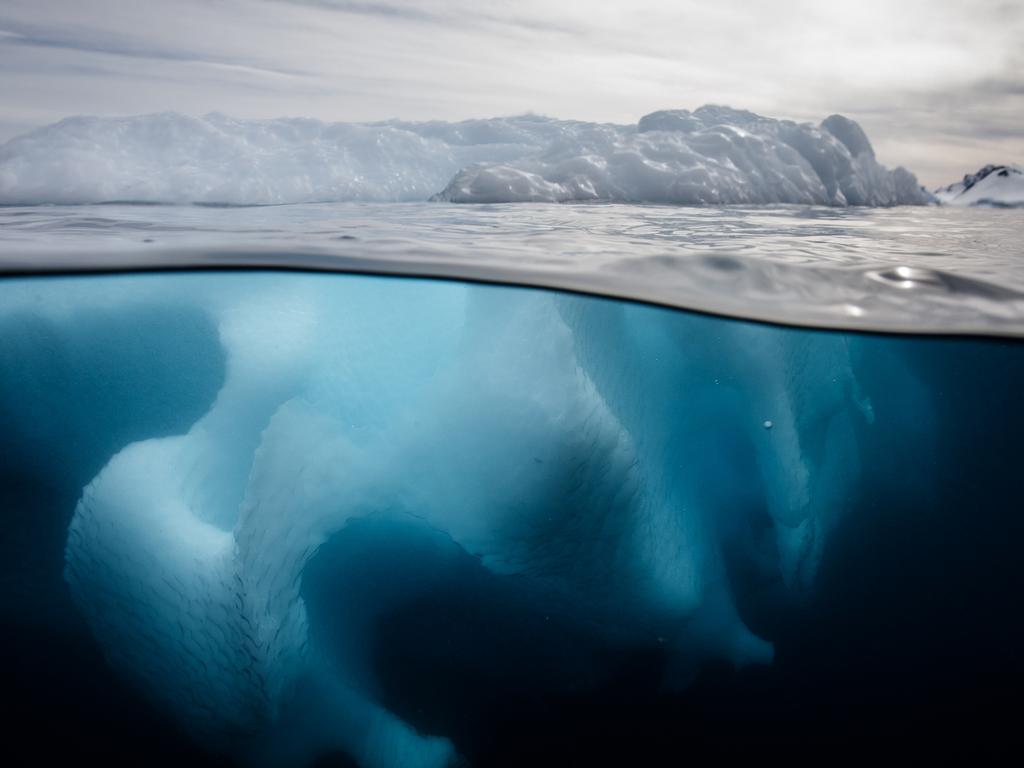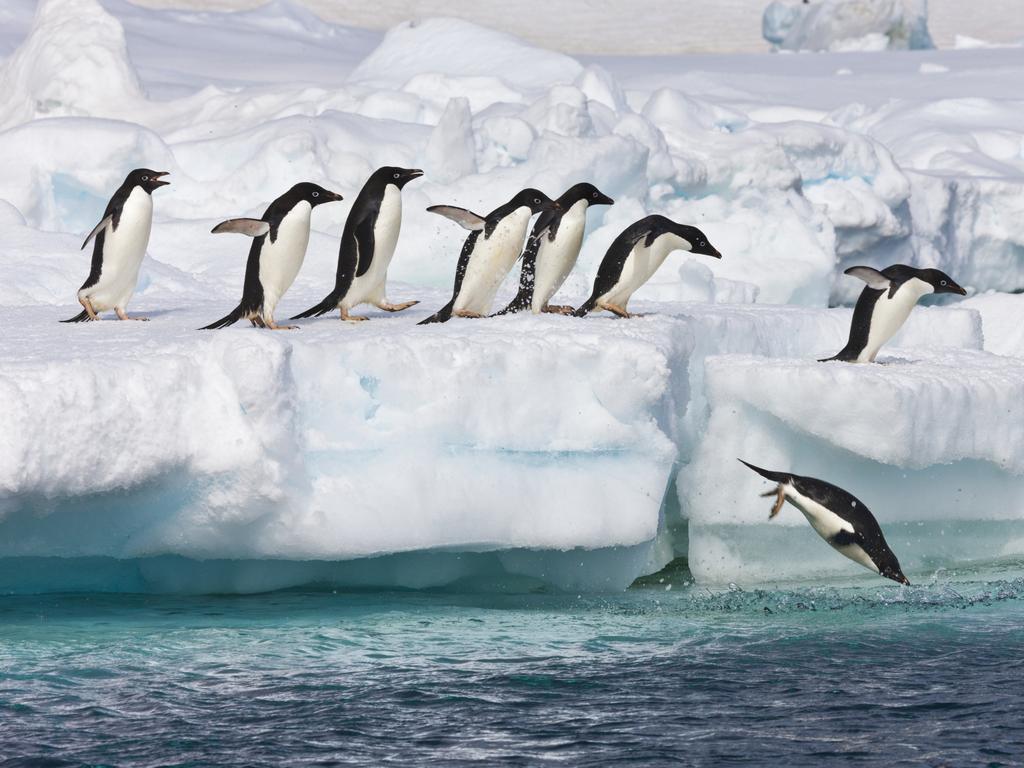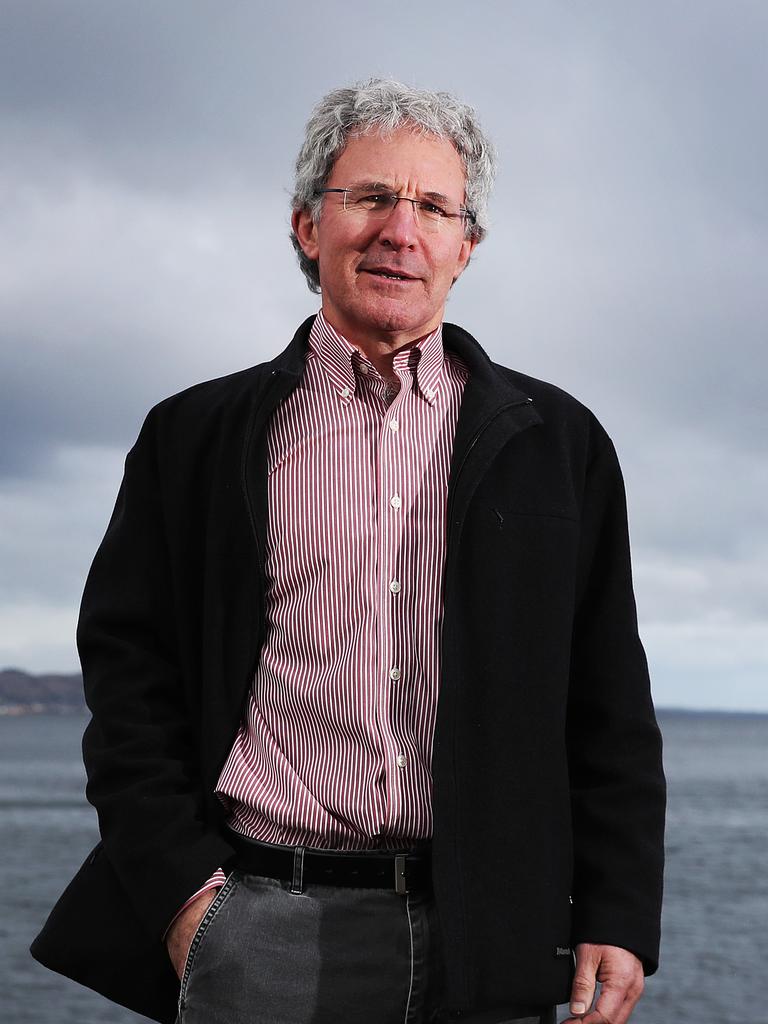‘A bit of a shock’: What ocean change really means
The melting of Antarctica’s glaciers is not just adding to sea level rise – it’s also set to have a massive impact on Australia. See why.
Massive shifts in water currents around Australia are set to have far-reaching implications for our marine life, fishing industry and even our weather patterns.
The East Australian Current — known to many through the movie Finding Nemo — now extends 350km further south than it did 50 years ago.
But an even bigger shift has just been revealed: the deep water currents around Antarctica have slowed far quicker than scientists had anticipated.
In March, researchers from UNSW, ANU and the CSIRO were projecting the Antarctic deepwater currents could slow by 42 per cent by 2050 – but the data published on Friday in the journal Nature Climate Change shows the waters have already slowed 30 per cent since 1990.
The new figure was “a bit of a shock,” lead researcher Professor Matthew England said.

Co-researcher Dr Steve Rintoul said the 2050 projection was always “likely to be a conservative estimate of how rapidly things might change” but it was now clear that model was “lagging reality”.
The slowdown has been caused by the melting of Antarctic glaciers; the fresh water they produce is less dense than the surrounding seawater, so it doesn’t sink with the same force. This slows circulation, and reduces oxygen levels in the deeper waters, making them less suitable for marine life.
Dr Rintoul said the drop in oxygen levels was as yet fairly small, but a “stagnant deep ocean would really change our climate and marine life”.
“The water around Antarctica supplies a network of ocean currents that extend around the globe. That network carries heat and nutrients and keeps a number of energy systems running,” Dr Rintoul said.

The researchers say the overturning of Antarctic waters will affect rainfall in Australia’s tropical north, with a shifting of the rain band and drier monsoon seasons likely.
The current trend will also have a massive impact on Australia’s marine industries.
A report by the Australian Institute of Marine Science released this week found Australia’s overall “blue economy” was now worth $118.5 billion, or 5.2 per cent of GDP, but commercial fishing was “experiencing an overall decline in economic output”.


A spokesman for the Australian Fisheries Management Authority said changes to Antarctic currents and circulation could affect “the intensity of the upwellings that support a number of Australian fisheries, particularly south east Australian and sub-Antarctic fisheries”.
Up to 70 per cent of target species in Australia are sensitive to the various effects of climate change, including changes in currents, and waters that are warmer, more acidic, and less oxygenated, according to AFMA.
Oxygen levels in southeast Australian fisheries have already declined by 2 per cent and could drop another 5 per cent by 2040, AFMA figures show.
“AFMA will continue working closely with scientists to better understand these impacts and integrate climate change into the science that supports management of Commonwealth fisheries,” the spokesman said.
More Coverage
Originally published as ‘A bit of a shock’: What ocean change really means




